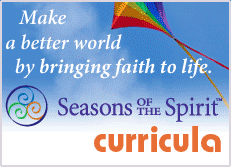
Sabbath Pause
Seven Weeks of Daily PracticesTerry Chapman
256 PP | 6" x 9"
Paper
ISBN: 978-1-77064-445-8
In a world where most of us fervently complain, “There just isn’t enough time!” we need to learn how to pause and truly rest. With Sabbath Pause, Terry Chapman offers a resource based on the Judeo-Christian tradition of Sabbath that can change the way we live in time.
The original Jewish “Sabbath” referred to a 24-hour period every seven days which was set aside for worship, rest, and renewal. Sabbath Pause offers daily writings that encourage us to make time for small Sabbaths each day – a time to stop, breathe, reflect, and direct our focus with a particular intention, be it listening for God in the noise of life or dreaming the impossible dream. Each day for seven weeks, Chapman uses a combination of poetry and prose as well as quotations from scripture and literature to explore a theme. This exploration is followed by questions for reflection, a breath prayer, and an “intention” for the day. Using this daily spiritual practice, Chapman opens us to a new rhythm or way of living life with and in God – a way that can nourish our deepest needs.
If you know there is more to living than the rush of daily life, if you are looking for something deeper but don’t know where to start, this book will provide the inspiration and the tools you need.
Sabbath Pause can be used individually or in community.
Terry Chapman, Author
Terry Chapman, D. Min., is pastor of the Forked River Presbyterian Church in New Jersey, USA. In addition to pastoral service, he engages in the practices of spiritual direction and retreat leadership. He is involved in a variety of learning communities including The Art of Convening and The Presencing Institute and is an adjunct instructor at New Brunswick Theological Seminary in New Jersey. He is also deeply commited to a group in Uganda that works with homeless children.
Customer Reviews
Bill WrightSpending much time in Southern California during the very late 1980s and most all of the 1990s, I spent much time and effort understanding what and who I was. Much of this work was done with the help of books and groups. Common to all the books...books on co-dependence, family of origin, inner child, men's spirituality, and a plethora of others of the time...was action. There were lists to be made, activities, meetings. And of course, there is always that new book that gets recommended and passed around and must be purchased and a new journal on the new thing must be procured. I was helped in many ways by all of this, to be sure. The downside was the seemingly endless frenzy of the next thing. That was 2 decades ago and 3500 miles west of where I am now. The old frenzies have slackened somewhat. Until I ran across Sabbath Pause by Terry Chapman. While it has just arrived on the scene, the essential and profound difference between all that other stuff and this book is the posture and direction of quiet and, well, pause. Terry has brought from early Christianity a sense of calm and both artfully and skillfully woven threads of faith and spirit. And with that difference, a circle, for me at least, has been formed. I like circles. I gave up digital watches several years ago--didn't like linearity of time. Analog is better. Dr. Chapman has done the same thing, in many ways, to the practice of pause, to the intentional posture of the act of pausing. He draws wisdom certainly from the Bible, as would be expected. He taps into other spiritual and laic sources as well to bring even more universality to the pause. Some of the practices seem familiar and comfortable. We don't learn new from comfort. This book can bring about a pause when Terry suggests a consideration question or, as a new meaning blossoms out of one of the poems...the undeniable urge is to come to a gentle halt and consider, purposefully, those scintilla. Do I recommend the book. Unquestionably, yes. The book, though, is a working document. Pause, a Sabbath Pause, requires effort of a different sort...and that is the challenge of Terry's work. Gently, purposefully, intentionally pause, not just to rest, to rest with purpose.
An excerpt from Week 1
Day Two
Rhythm
The meaning of Sabbath is to celebrate time rather than space. Six days a week we live under the tyranny of things of space; on the Sabbath we try to become attuned to holiness in time. It is a day on which we are called upon to share in what is eternal in time, to turn from the results of creation to the mystery of creation; from the world of creation to the creation of the world.
Abraham Heschel
There is not enough time! That seems to be a common cry of our leisure-starved culture. We hurry from one activity to the next. Breathless and exhausted, who can stop long enough to pray?
This “dis-ease” can be described as spiritual arrhythmia. Like an irregular heartbeat that causes fatigue, stress, and even death, our lives are out of synch. Chemical equilibrium can be restored with medication and life-style changes. Sabbath practice is the antidote for spiritual arrhythmia. Sabbath is an opportunity to reclaim our natural spiritual rhythm buried under layers of busyness, distraction, and clutter.
Often we extend all of our energy and resources trying to control our space. We like our space to be comfortable and filled with things that give us pleasure. We work many hours each day in order to accumulate more and more stuff (or if the stuff doesn’t help, we may turn to food or drugs or work in the hope of being filled). But sooner or later, restless and unfulfilled, we become aware of the shallowness of materialism. We yearn to slow down and change our focus.
But most of us don’t know how to begin to think and live differently. We have no map to lead us out of the gripping maze of materialism. Perhaps we procrastinate, thinking, the sooner I can retire the better! Then I’ll have the time. One of these days I’m going to take a long vacation. But when we do retire and have free time, we fill it with activities. Then once again we have no time!
When it comes to having free time, however, we aren’t quite as sure what to do. We spend so much of our energy on filling space that we dread unplanned time and become extremely uncomfortable when forced to look time in the face.
This tension between time and space causes spiritual arrhythmia. Sabbath is an opportunity to bring into balance time and space (which are intricately woven) so they are more in synch, and so that our life has a steady rhythm.
Sabbath is a rhythm that we can practice in our lives today. Vacations are refreshing; retreat days or weekends are restorative; retirement can be fulfilling. But we don’t have to pursue our anxiety-filled lives or wait for some unknown future time to experience much-needed serenity and renewal. The little Sabbaths, the prayerful pauses along the way, will set our course of contentment. Now is the time to stop being controlled by the oppression of agendas and allow the gift of Sabbath to restore balance.
It is not a thing that lends significance to a moment; it is the moment that lends significance to things.
You can punch my lips so I can’t blow my horn,
but my fingers will find a piano.
You can slam the piano lid on my fingers,
but you can’t stop by toes from tapping like a drum.
You can stomp on my feet to keep my toes from tapping,
but my heart will keep swinging in four-four time.
You can even stop my heart from ticking,
but the music of the saints shall never cease.
Graffiti on a New York City subway
Rhythm is the soul of life. The whole universe revolves in rhythm. Everything and every human action revolve in rhythm.
Babatunde Olatunji
For Reflection
Touch a part of your body where you can feel your pulse. Feel the rhythm; steady, constant.
Try to imagine the rhythm of your spiritual life. Is it steady or rushed; constant or erratic?
What kind of music do you like (jazz, country, classical, popular, Latin)? Can you describe how the rhythm of that music is mirrored in your life?
As you touch the rhythm of your life, can you imagine God dancing with you according to that rhythm?
Intention
Today I am aware of the rhythm of Spirit in my life.
Breath Prayer
Breathing in A time to weep, and a time to laugh
Breathing out a time to mourn, and a time to dance











